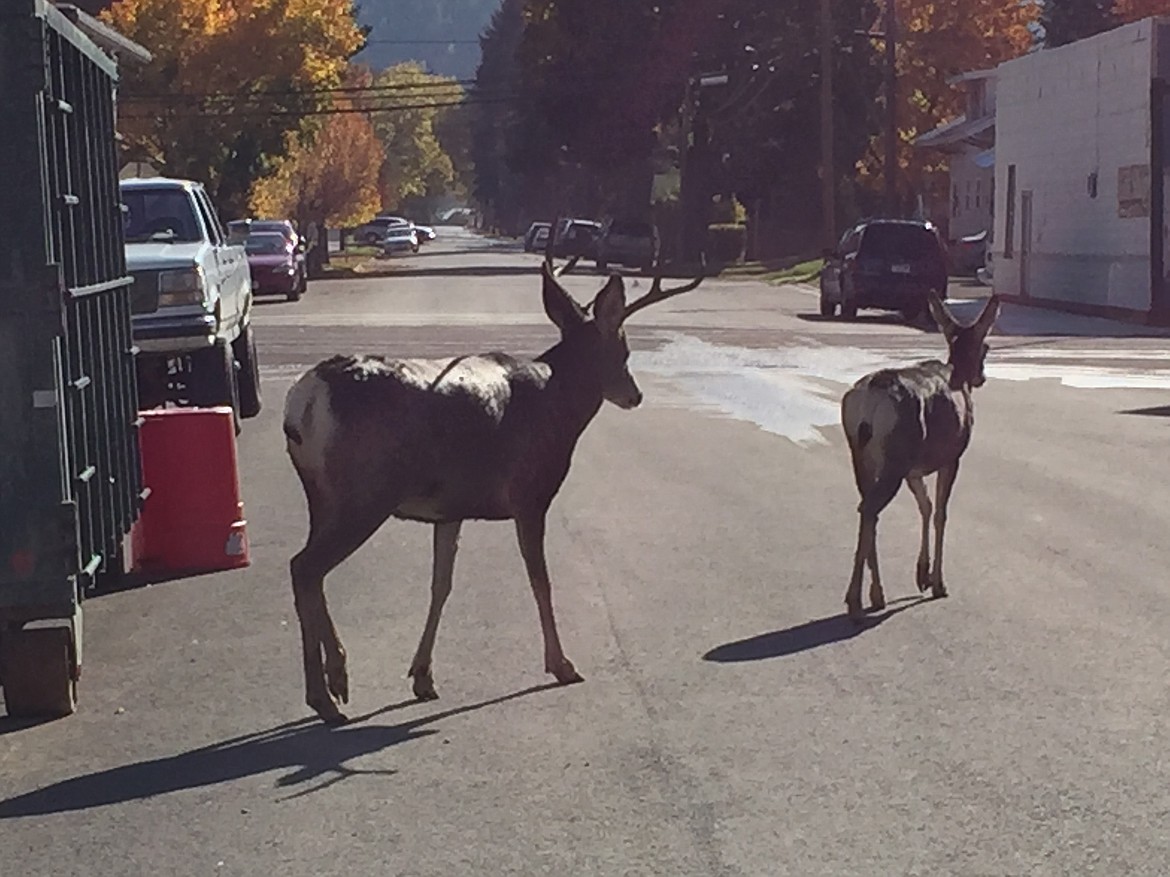Libby officials review CWD management plan
As efforts to merge local and state responses to chronic wasting disease continue, Libby officials have received a draft management plan from Montana Fish Wildlife and Parks.
While the state roadmap to reducing the disease remains under review, Libby City Councilor Gary Beach said the COVID-19 pandemic has delayed coordination efforts between FWP and the city.
The state’s new guidelines call for surveying populations to get an accurate count of the deer in the city, using traps and sharpshooters to reduce their numbers and monitoring all killed animals for CWD. To keep more deer out of the Libby, FWP officials plan to reduce food and water attractants in the area.
State officials plan to coordinate with Libby authorities and provide the city councilors with annual updates. Officials will still ask hunters to dispose of ungulate carcasses in the Libby Landfill. However, hunters are no longer restricted from transporting carcasses throughout the state, said Dillon Tabish, regional information and education manager for FWP.
By taking these measures, FWP officials hope to reduce deer density in the Libby urban area by 25 to 50 percent in the next five years. The plan also aims to reduce the prevalence of CWD in the region to five percent. Surveys conducted in the past year put the CWD prevalence in Libby at around 13 percent.
To carry out the plan, FWP officials have an annual budget of $18,500. The funds are divided between a $3,500 refrigeration trailer, two seasonal technicians — who will work for 10 weeks from late December to February for $7,500 each — and $5,000 in miscellaneous operations costs.
FWP officials have told Libby City Council, however, that funding from Helena might not be forthcoming this year.
“In all frankness, we’re not certain whether or not we’ll be able to continue management, as we did last year, this winter,” said Tonya Chilton-Radandt, wildlife biologist during an Aug. 17 meeting. “I guess the long and short of it is, really, it’s our intent at this time is to continue as we did last year as much as possible.”
City councilors serving on Libby’s wildlife management plan committee were supposed to review the state’s document during a meeting scheduled for Sept. 16. Due to technical difficulties, though, the meeting was postponed.
City officials intend to merge the FWP plan with their own management guidelines. Under the current draft of the Libby plan, the number of both transient and resident deer in the city will be reduced through trapping efforts from December to February. Libby police officers and FWP wardens will work together to determine if sharpshooting can be conducted safely.
Deer that are harvested by authorities and test negative for CWD will be donated to a charity or the local food bank. If a resident finds a deer carcass within city limits, they are asked to contact City Hall. Under the Libby plan, officials with the city road department will come and properly dispose of it in the city landfill.
Libby officials also anticipate launching an education campaign to inform residents of how to properly dispose of carcasses and stop them from feeding deer.
Feeding game is a misdemeanor that carries a fine of up to $1000 and or imprisonment in county jail for up to six months.
While they hope for community buy-in, officials also plan to remind residents to leave the culling up to professionals. It remains illegal to discharge a firearm within city limits.


